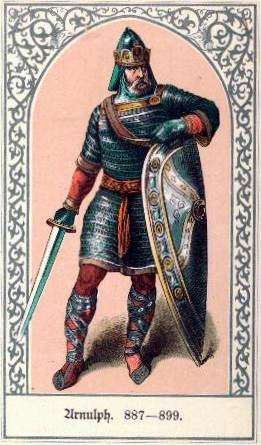887
Year 887 (DCCCLXXXVII) was a common year starting on Sunday (link will display the full calendar) of the Julian calendar.
| Millennium: | 1st millennium |
|---|---|
| Centuries: | |
| Decades: | |
| Years: |
|
| 887 by topic |
|---|
| Leaders |
| Categories |
|
| Gregorian calendar | 887 DCCCLXXXVII |
| Ab urbe condita | 1640 |
| Armenian calendar | 336 ԹՎ ՅԼԶ |
| Assyrian calendar | 5637 |
| Balinese saka calendar | 808–809 |
| Bengali calendar | 294 |
| Berber calendar | 1837 |
| Buddhist calendar | 1431 |
| Burmese calendar | 249 |
| Byzantine calendar | 6395–6396 |
| Chinese calendar | 丙午年 (Fire Horse) 3583 or 3523 — to — 丁未年 (Fire Goat) 3584 or 3524 |
| Coptic calendar | 603–604 |
| Discordian calendar | 2053 |
| Ethiopian calendar | 879–880 |
| Hebrew calendar | 4647–4648 |
| Hindu calendars | |
| - Vikram Samvat | 943–944 |
| - Shaka Samvat | 808–809 |
| - Kali Yuga | 3987–3988 |
| Holocene calendar | 10887 |
| Iranian calendar | 265–266 |
| Islamic calendar | 273–274 |
| Japanese calendar | Ninna 3 (仁和3年) |
| Javanese calendar | 785–786 |
| Julian calendar | 887 DCCCLXXXVII |
| Korean calendar | 3220 |
| Minguo calendar | 1025 before ROC 民前1025年 |
| Nanakshahi calendar | −581 |
| Seleucid era | 1198/1199 AG |
| Thai solar calendar | 1429–1430 |
| Tibetan calendar | 阳火马年 (male Fire-Horse) 1013 or 632 or −140 — to — 阴火羊年 (female Fire-Goat) 1014 or 633 or −139 |

King Arnulf of Carinthia (c. 850–899)
Events
By place
Europe
- November 17 – East Frankish magnates revolt against the inept emperor Charles III (the Fat) in an assembly at Frankfurt, and depose him. His nephew Arnulf of Carinthia, the illegitimate son of former king Carloman of Bavaria, is elected ruler of the East Frankish Kingdom. Charles yields his throne without a struggle, and retires to Neidingen.
- December 26 – In an assembly at Pavia (Northern Italy), the lords of Lombardia elect Berengar I, a grandson of former emperor Louis the Pious (through his daughter Gisela), as king of Italy. He is crowned with the Iron Crown of Lombardy. After the deposition of Charles the Fat, the nobility chooses Ranulf II as duke (or 'king') of Aquitaine.
Japan
- August 26 – Emperor Kōkō abdicates the throne and soon dies, after a 3-year reign. He is succeeded by his 20-year-old son Uda, as the 59th emperor of Japan.
Arabian Empire
- The city of Toledo rises against the Umayyad Dynasty, in Al-Andalus (modern Spain).[1]
Births
- Frederuna, queen of the West Frankish Kingdom (d. 917)
- Qian Yuanguan, king of Wuyue (Ten Kingdoms) (d. 941)
- Song Qiqiu, chief strategist of Southern Tang (d. 959)
Deaths
- January 11 – Boso of Provence, Frankish nobleman
- April 6 – Pei Che, chancellor of the Tang Dynasty
- July 6 – Wang Chongrong, Chinese warlord
- August 26 – Kōkō, emperor of Japan (b. 830)
- September 18 – Pietro I Candiano, doge of Venice
- September 24 – Gao Pian, general of the Tang Dynasty
- Abbas ibn Firnas, Muslim physician and inventor (b. 810)
- Ibn Majah, Muslim hadith compiler (or 889)
- Jeonggang, king of Silla (modern Korea)
- Xiao Gou, chancellor of the Tang Dynasty
- Yantou Quanhuo, Chinese Chan master (b. 828)
- Zheng Changtu, chancellor of the Tang Dynasty
- Zhu Mei, Chinese warlord (approximate date)
gollark: Yes.
gollark: ++remind 16m thing
gollark: It was not.
gollark: I see.
gollark: What time?
References
- Rucquoi, Adeline (1993). Histoire médiévale de la Péninsule ibérique. Paris: Seuil. p. 85. ISBN 2-02-012935-3.
This article is issued from Wikipedia. The text is licensed under Creative Commons - Attribution - Sharealike. Additional terms may apply for the media files.